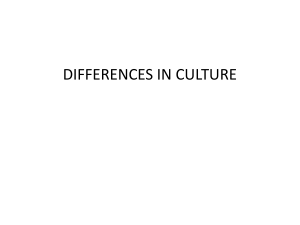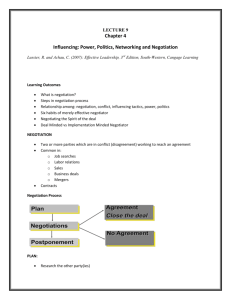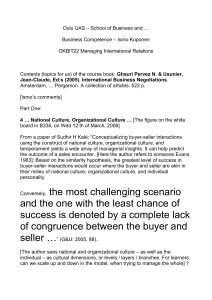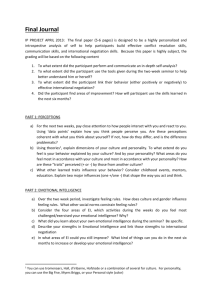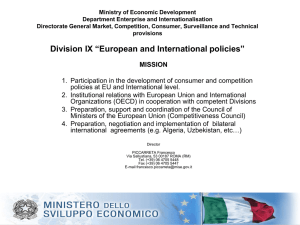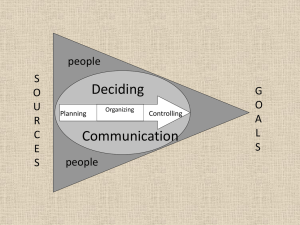Abstract
advertisement
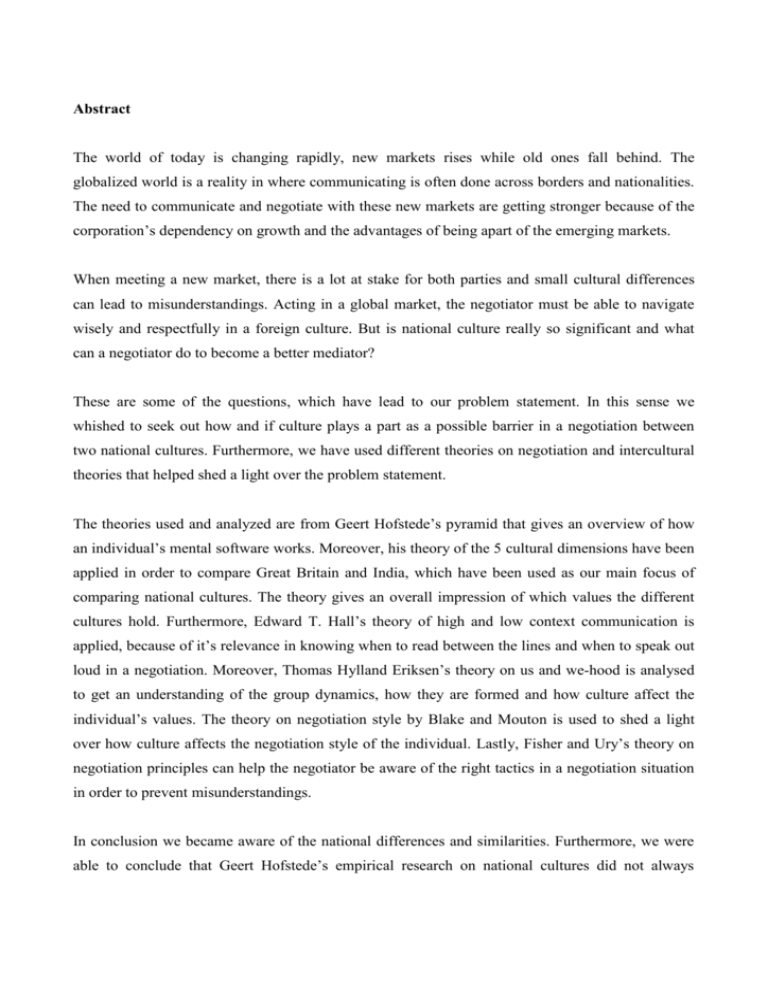
Abstract The world of today is changing rapidly, new markets rises while old ones fall behind. The globalized world is a reality in where communicating is often done across borders and nationalities. The need to communicate and negotiate with these new markets are getting stronger because of the corporation’s dependency on growth and the advantages of being apart of the emerging markets. When meeting a new market, there is a lot at stake for both parties and small cultural differences can lead to misunderstandings. Acting in a global market, the negotiator must be able to navigate wisely and respectfully in a foreign culture. But is national culture really so significant and what can a negotiator do to become a better mediator? These are some of the questions, which have lead to our problem statement. In this sense we whished to seek out how and if culture plays a part as a possible barrier in a negotiation between two national cultures. Furthermore, we have used different theories on negotiation and intercultural theories that helped shed a light over the problem statement. The theories used and analyzed are from Geert Hofstede’s pyramid that gives an overview of how an individual’s mental software works. Moreover, his theory of the 5 cultural dimensions have been applied in order to compare Great Britain and India, which have been used as our main focus of comparing national cultures. The theory gives an overall impression of which values the different cultures hold. Furthermore, Edward T. Hall’s theory of high and low context communication is applied, because of it’s relevance in knowing when to read between the lines and when to speak out loud in a negotiation. Moreover, Thomas Hylland Eriksen’s theory on us and we-hood is analysed to get an understanding of the group dynamics, how they are formed and how culture affect the individual’s values. The theory on negotiation style by Blake and Mouton is used to shed a light over how culture affects the negotiation style of the individual. Lastly, Fisher and Ury’s theory on negotiation principles can help the negotiator be aware of the right tactics in a negotiation situation in order to prevent misunderstandings. In conclusion we became aware of the national differences and similarities. Furthermore, we were able to conclude that Geert Hofstede’s empirical research on national cultures did not always correspond to our analyses and the conclusion we were able to form. In addition, Richard Gesteland’s business behaviour equally did not correspond to some of our results. With this in mind, we were able to discuss if culture or personality are the dominant factor for an individual’s behaviour in a negotiation situation. The most important conclusion made was that culture has great significance for the negotiation process to the extent that the individual’s personality is affected by the culture she or he grew up in. Thereby, the negotiation style is also affected by culture because of the fact that it is personality driven.
